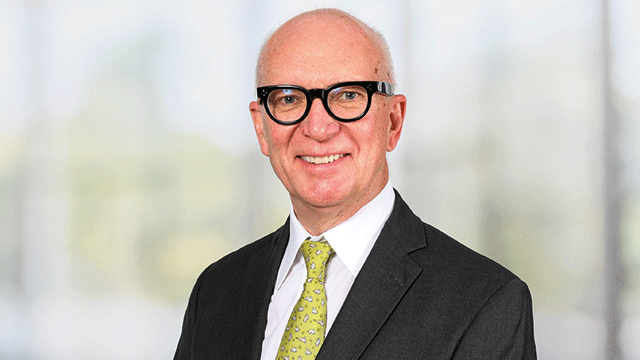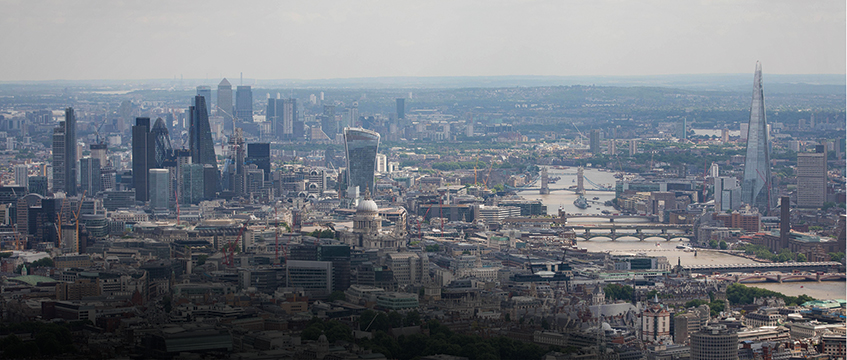Why London is still a centre of confidence
Despite political turbulence dominating discussions around London offices over the past 18 months, investment has continued to pour into the capital from all corners of the world.
London has retained its reputation as one of the safest environments for investors to put their money, although some occupational decisions may still be affected or delayed by uncertainty over Brexit.
However, global players with an eye on longer-term returns seem confident they can ride out any potential storms arising from the protracted divorce from the EU and bank on rent from the capital’s businesses as part of wider diversification strategies for their income streams.
Despite political turbulence dominating discussions around London offices over the past 18 months, investment has continued to pour into the capital from all corners of the world.
London has retained its reputation as one of the safest environments for investors to put their money, although some occupational decisions may still be affected or delayed by uncertainty over Brexit.
However, global players with an eye on longer-term returns seem confident they can ride out any potential storms arising from the protracted divorce from the EU and bank on rent from the capital’s businesses as part of wider diversification strategies for their income streams.
London’s perceived stability and safety set against alternative office markets worldwide which have a reputation for either volatility or exorbitance is another pull factor for investors if they are looking at the longer-term picture and want to minimise risk.
In addition, the pound remained relatively weak throughout 2017. This meant, in effect, overseas buyers were enjoying a discount of roughly 20% on purchases made against what those assets would have cost in 2015, for example.
If there was any reticence over the possibility of short-term occupational hiccups in London affecting income streams, the implied discount would certainly have helped mitigate that.
We’ve already seen one mammoth overseas transaction, with the Malaysian investors in Battersea Power Station committing £1.6bn – but two factors which may subdue the trend in 2018 are that the pound has staged a small recovery this year – reducing the discount slightly, and the UK is scrapping capital gains tax exemption for overseas buyers of commercial property from April 2019.
‘Prepare for the unexpected’
Damian Cronk, head of commercial transactions, BNP Paribas Real Estate
London’s real estate market proved robust throughout 2017. Total commercial investment was £19.8bn, up by 25% on 2016, while a total investment return of 7.2% on central London offices came in ahead of consensus at the start of the year.
Major global investors, many of which now operate off very long-term time horizons, continue to look beyond the risk of immediate-term volatility with an eye on the UK’s strong underlying fundamentals.
Yields on prime assets actually compressed a little this year thanks to strong bidding from a variety of buyers, although the price remains too steep for UK institutional money.
Interestingly, although much focus has been on the investment activity of buyers from China and Hong Kong, they are not the only overseas players in the market.
This year we are seeing investors from the Middle East return to London, seeking to place capital in a city they are very comfortable and familiar with.
US and German investors also remain active, following some major acquisitions in 2017. For some investors, low yields in core European cities have pushed them further afield in the search for income return.
The experience of the past few years should remind us, however, to prepare for the unexpected. There are expectations that we will see steady rises in interest rates in the coming years as the economy “normalises” and inflation returns.
The consensus in real estate – that rises in the risk-free rate will be compensated for by increased economic growth (and rental) expectations – sounds perfectly reasonable.
Nevertheless, investors should consider how their particular investment objectives and financial structure would be affected by short-term volatility.
Looking to the longer term, while there has been some debate regarding London’s future as a global financial centre, the new masters of the universe – Amazon, Facebook and Google – have been expanding their footprint in the capital, seeking to win the technology sector’s fierce war for talent. What they know is that London is built on clay, not sand.
To send feedback, e-mail graham.shone@egi.co.uk or tweet @GShoneEG











